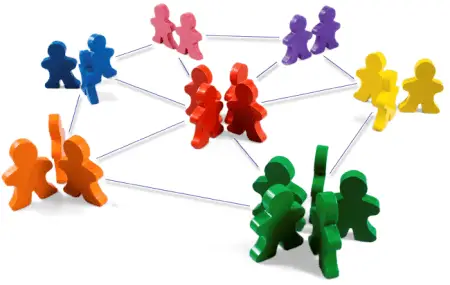The words “relation” and “relationship” are sometimes incorrectly interchanged, not only because the root word of “relationship” is “relation” but also because they both have to do with connections. Let’s take a look at this scenario:
Grace Weist, a 60-year old woman, lives in a nursing home. Paula Hernandez, a 22-year old volunteer, selflessly takes care of her every day as if Grace is her mother.
Should we say, “Grace and Paula have a mother-daughter relation,” or should we say, “Grace and Paula have a mother-daughter relationship”? Confused? This article will discuss the difference between the two.
Summary Table
| Relation | Relationship |
| Can mean: the connection between large groups of people; people related to each other; personal account; sameness of two subjects; with reference to (when used in the phrase “in relation to”) | Can mean: the connection between small groups of people; connection between people and how they behave towards each other; connection or involvement of one subject to another |
| Typically used in formal context, especially when the topic is about countries and large groups of people | Used in an informal context |
Definitions

Relation is normally used in a formal context. It:
- Refers to the mutual connection and interaction between countries and large groups of people; for example: “The relations between the Japan and South Korea have always been solid.”
- Refers to people related to each other; for example: “The millionaire invited all his relations, including the distant ones, to his daughter’s birthday party.”
- Means a “personal account”; for example: “The teacher was very abusive, according to the child’s relation.”
- Describes the sameness of two things; for example: “The relation between the series “Riverdale” and the original Archie comics is almost imperceptible.”
- Means “with reference to” when used in the phrase “in relation to”; for example: “Our class valedictorian wrote a 3-page essay in relation to the recent rules imposed by the school administration.”
On the other hand, relationship is commonly used in informal context. It is:
- A common term that refers to the link between small groups of people; for example: “The relationship I had with my high school classmates was something I will treasure forever.”
- A connection between people and how they behave towards each other; for example: “My mom was furious when she found out my sister was in a relationship with an older guy.”
- A word that links two subjects; for example: “Many residents believe that there is a relationship between the grocery store theft that happened last night and the XYZ gang.”
Relation vs Relationship
What, then, is the difference between a relation and a relationship?
The word “relation” is typically used in a formal context. It can mean “the mutual connection between countries.
” It also describes people who are related to each other or the sameness of two subjects.
It also means “personal account.
” Additionally, it is used in the phrase “in relation to” which means “with reference to.”
On the other hand, the word “relationship” is commonly used in an informal context. It describes the connection between small groups of people or the connection between specific people and how they act toward each other.
It also describes how two things are connected.
In conclusion, we can say, “Grace was taken care of by Paula though she was no blood relation at all,” and that, “Grace and Paula have a mother-daughter relationship.”





